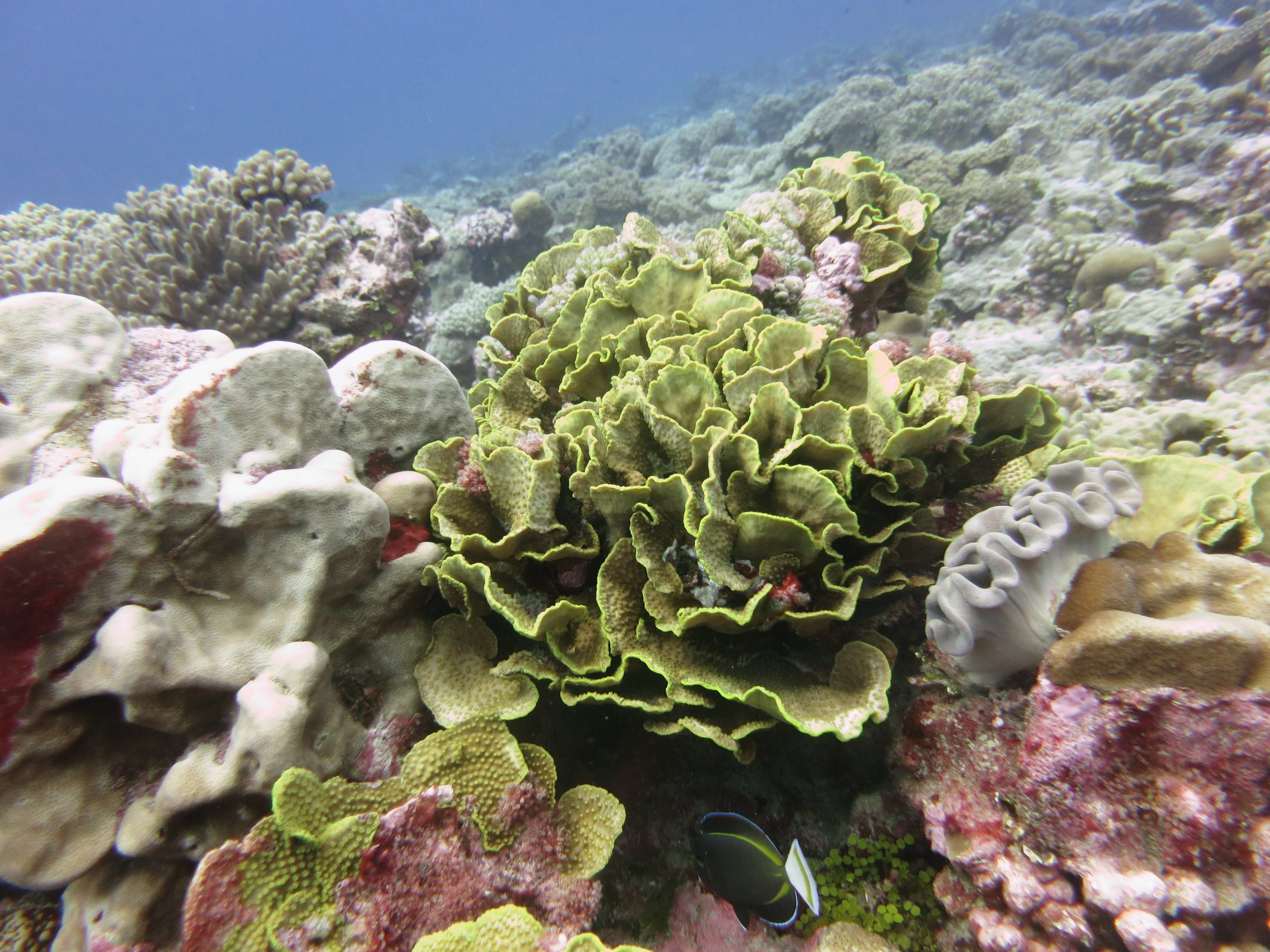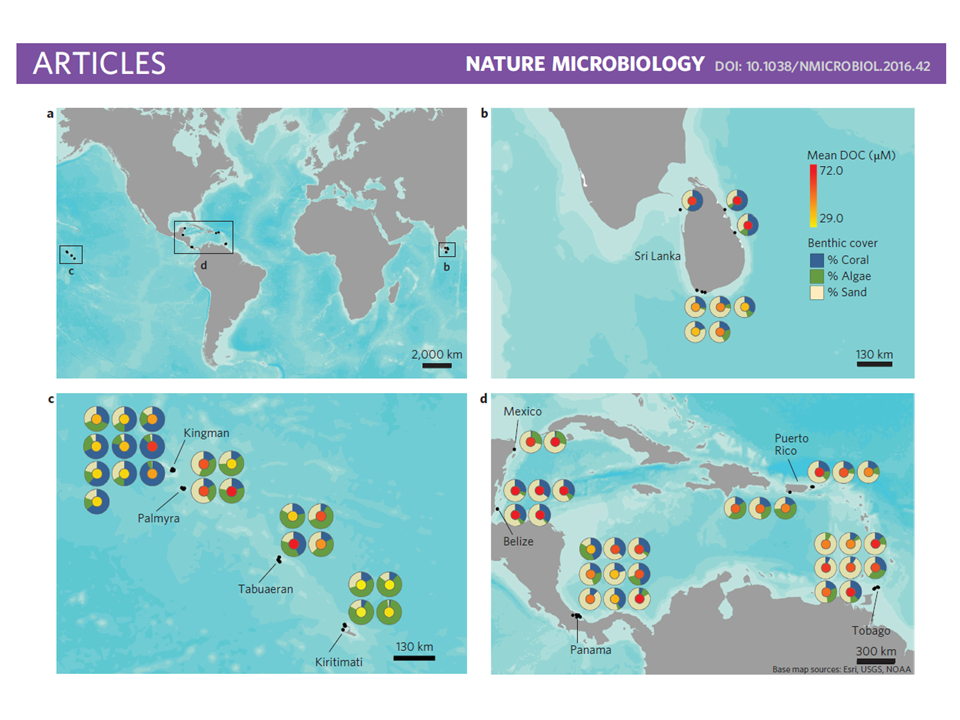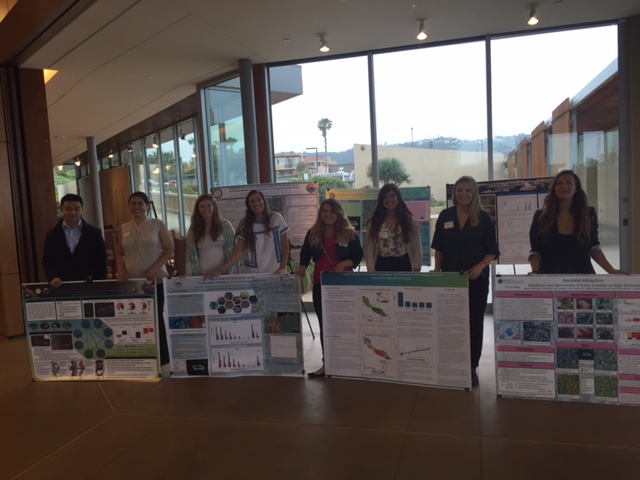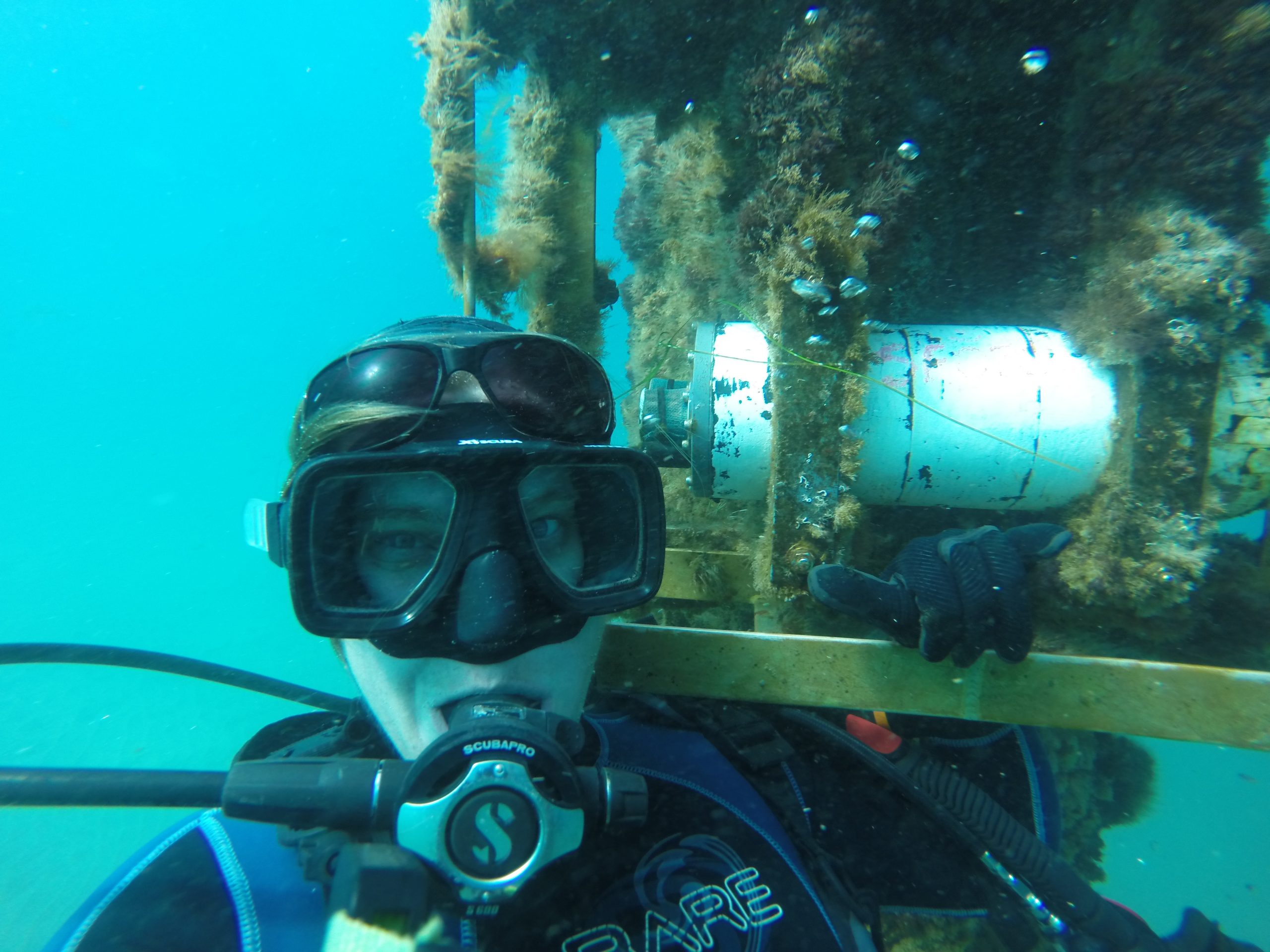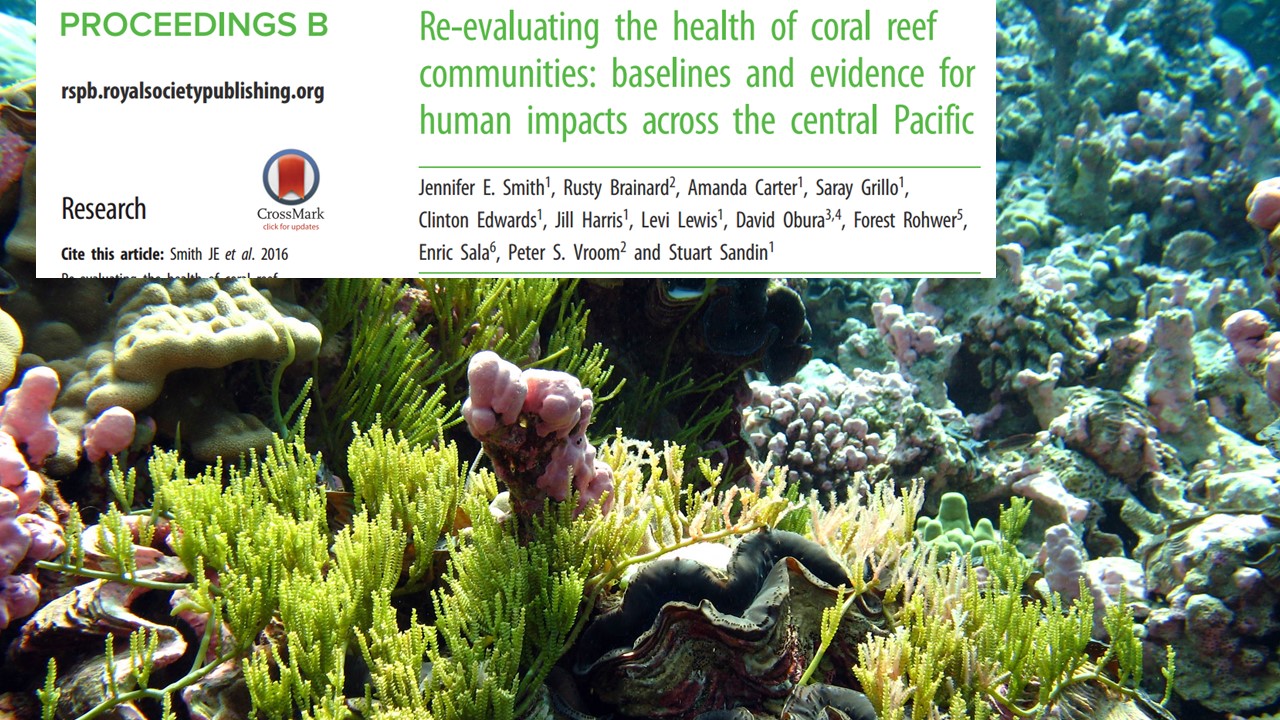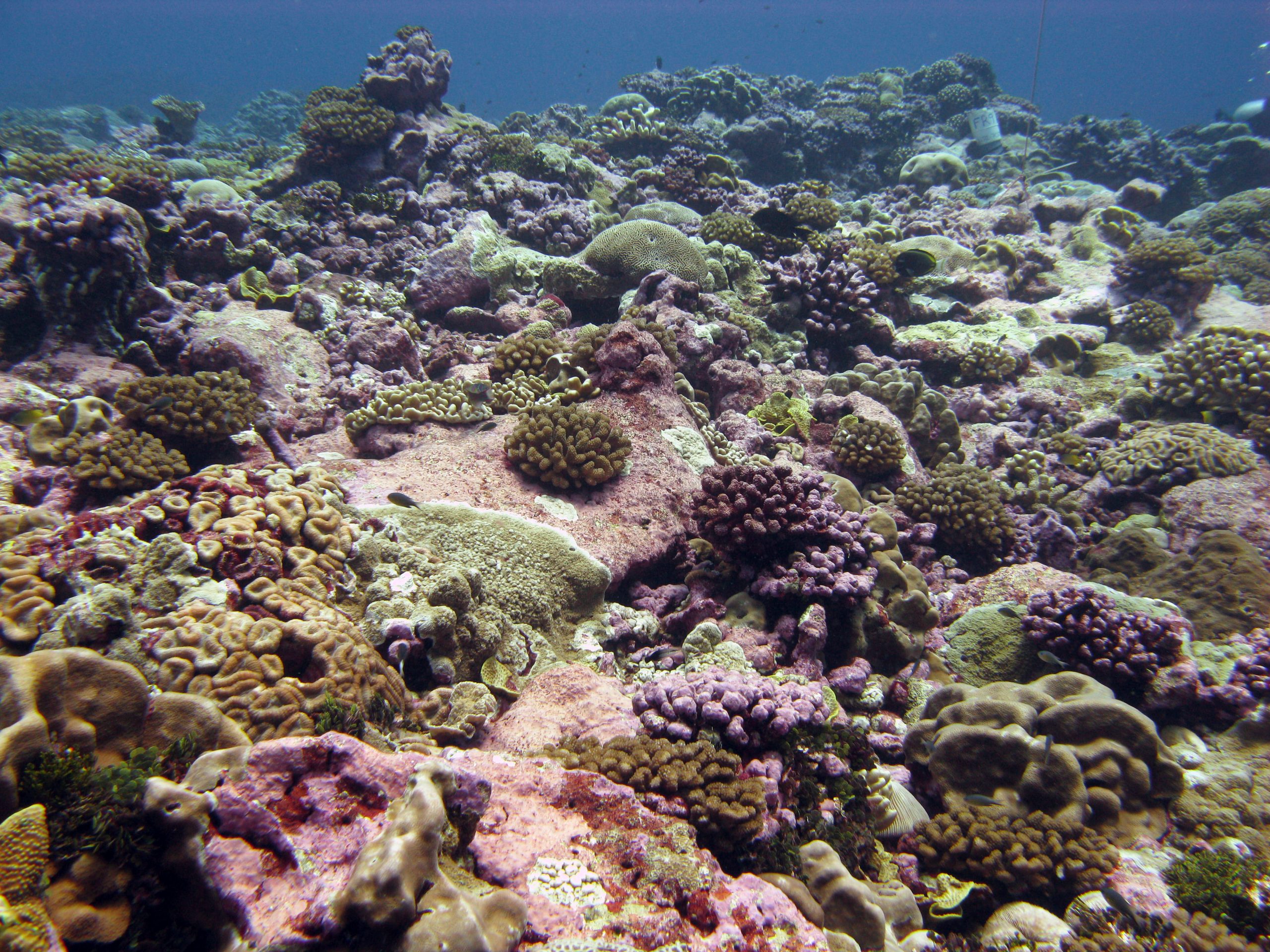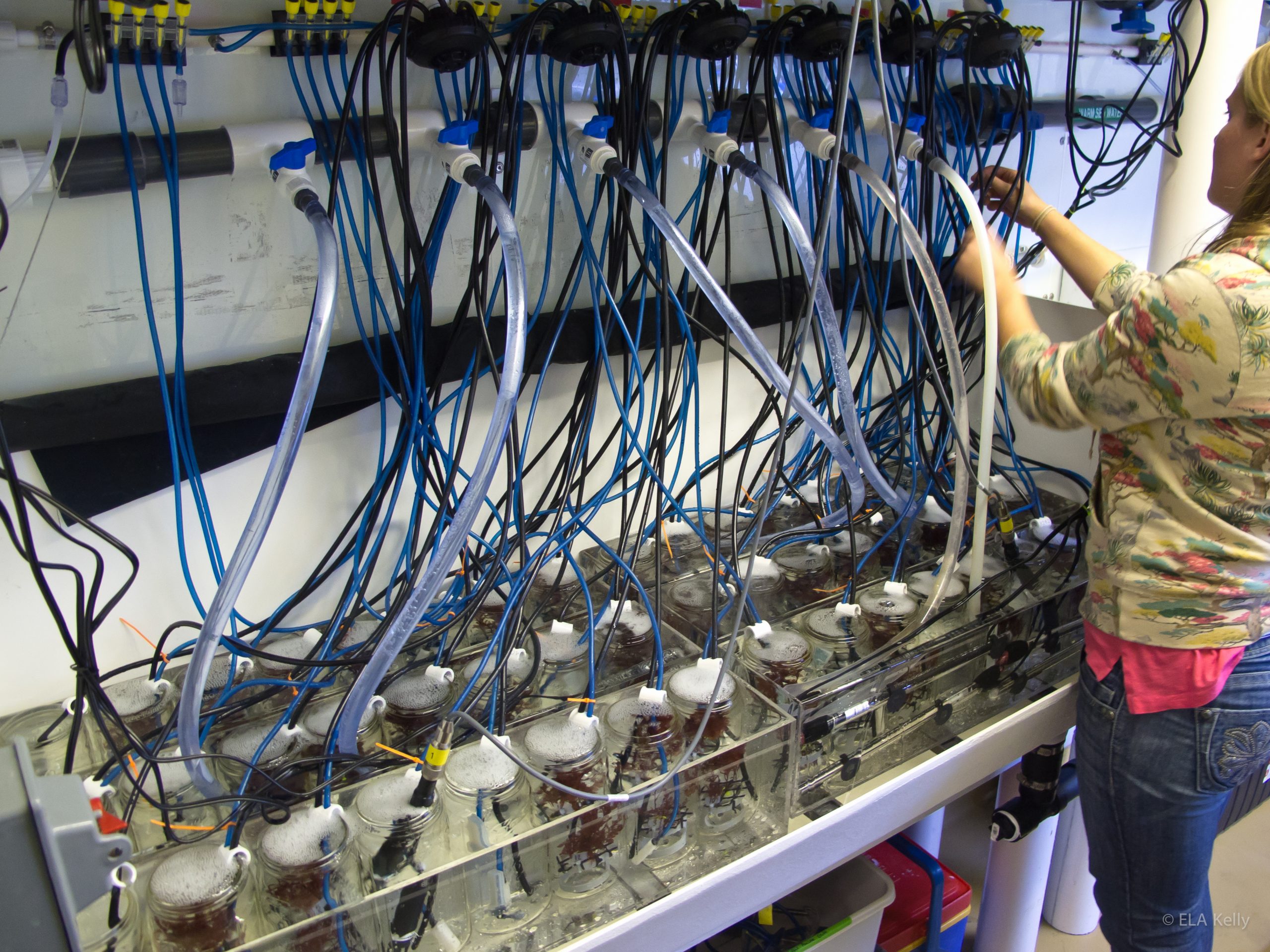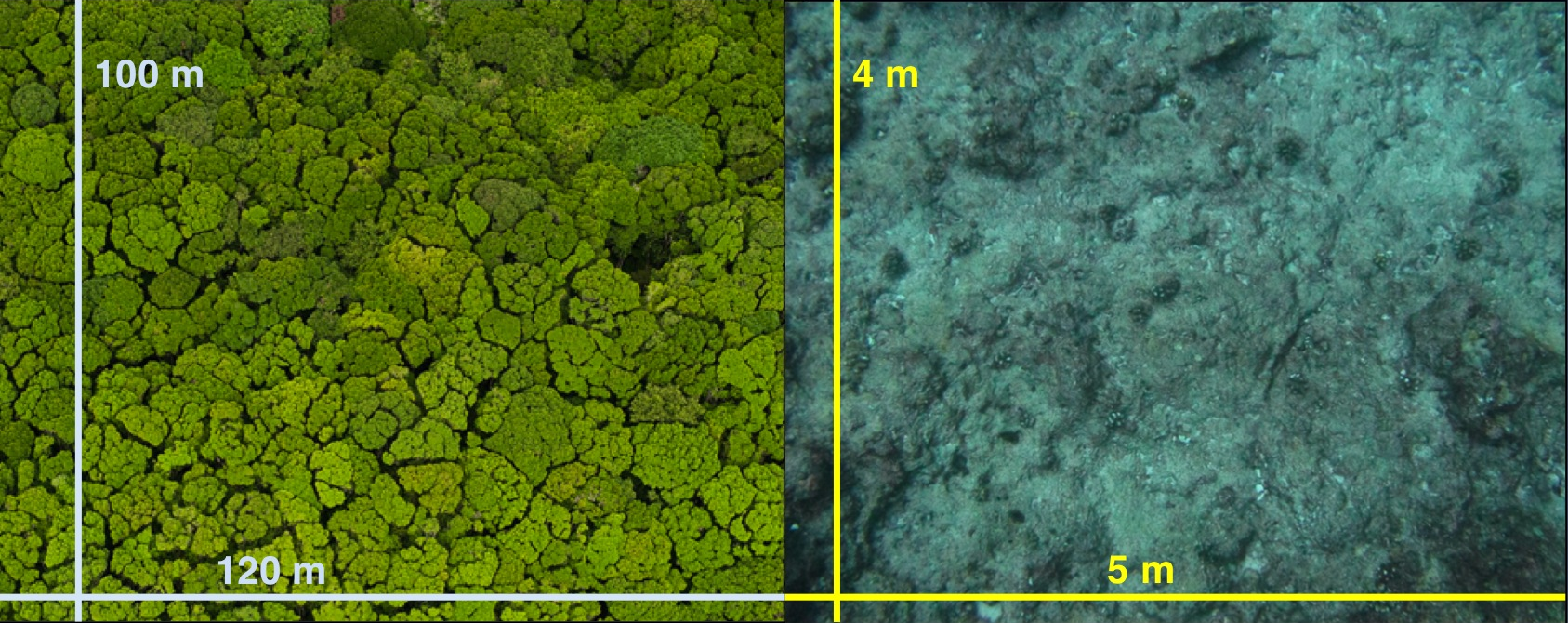The abnormally warm water event associated with El Niño has been pummeling coral reefs worldwide. Last week the Sandin and Smith labs from Scripps Institution of Oceanography embarked on a rapid response expedition to survey the damage of the warm sea surface temperatures at one of our long term monitoring sites. Palmyra Atoll, a tiny island in the central Pacific, … Read More
Smith lab and colleagues publish new paper looking at microbes on coral reefs
Global microbialization of coral reefs Abstract: Microbialization refers to the observed shift in ecosystem trophic structure towards higher microbial biomass and energy use. On coral reefs, the proximal causes of microbialization are overfishing and eutrophication, both of which facilitate enhanced growth of fleshy algae, conferring a competitive advantage over calcifying corals and coralline algae. The proposed mechanism for this competitive … Read More
Congratulations to the Smith and Sandin Lab Undergraduates!
Congratulations to all of the Smith and Sandin lab undergraduates for their presentations at the Scripps Undergraduate Research Symposium? Special Congrats to Ellen Williams and Madeline Anderson for winning best poster awards!
Published Results on Invasive Algae in San Diego
Smith Lab members Niko Kaplanis and Jill Harris recently published the results of their San Diego County non-native algae research project conducted between 2012 and 2014. This work documented patterns of establishment, spread, and persistence for two non-native algal species in San Diego county and analyzed this invasion in the larger geographic context of the entire Pacific Coast of North … Read More
SOAR with me underneath the Scripps Pier!
It is another beautiful day in paradise. This paradise is sunny San Diego, California. Today we’ll suit up for a dive underneath the pier at Scripps Institution of Oceanography to visit our underwater instruments for a cleaning and calibration water sample. I have done this dive over 200 times, but thankfully it doesn’t get old. I have been able to … Read More
From the Pristine to Degraded: Reefs of the Central Pacific
Scripps led research team assesses the impacts of human disturbance on coral reefs. In one of the most comprehensive assessments of Pacific Ocean coral reef health spanning 10 years, 56 islands, and five archipelagos, Scripps Institution of Oceanography at UC San Diego marine ecologist Jennifer Smith and colleagues examined how coral reef communities at 450 sites are faring with … Read More
Scientists measure the ‘beauty’ of coral reefs
Dr. Smith and co-authors from San Diego State University, the Getty Research Institute, and the Scripps Institution of Oceanography recently published a paper in PeerJ entitled: ‘Can we measure beauty? Computational evaluation of coral reef aesthetics.’ “Our results suggest that our perception of aesthetics is well-aligned with healthy, thriving ecosystems,” said Andreas Haas, an SDSU postdoctoral scholar and primary researcher of … Read More
Published Results: Effects of ocean acidification on San Diego seaweeds
A new paper, written by Susan Kram and co-authors, was recently accepted for publication in the ICES Journal of Marine Science themed article set on Ocean Acidification. The paper, “Variable responses of temperate calcified and fleshy macroalgae to elevated pCO2 and warming,” describes the responses of six different locally abundant San Diego seaweeds to future ocean acidification and warming conditions. … Read More
Published Results – new paper focuses on the small things on a coral reef
Jill’s new paper, written with Jen and Levi, came out recently in the Marine Ecology Progress Series. Their paper, Quantifying scales of spatial variability in algal turf assemblages on coral reefs, describes how turf algae on a coral reef are variable over very small scales. Turf algae are a group of small (~ 1 cm tall) algae that grow like a fuzzy … Read More
Adventures in Chagos
By Samantha Clements. This year, during the months of March and April, I conducted coral reef benthic surveys for the Khaled bin Sultan Living Oceans Foundation (KSLOF) in Chagos. Chagos is the largest archipelago in the world and lies within the British Indian Ocean Territory. The islands of the archipelago are very far from any continents and have been uninhabited … Read More


